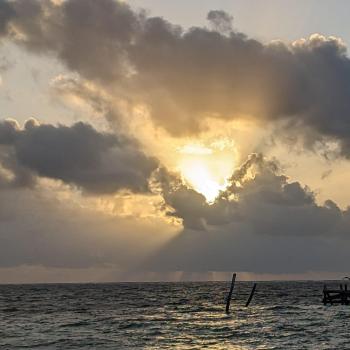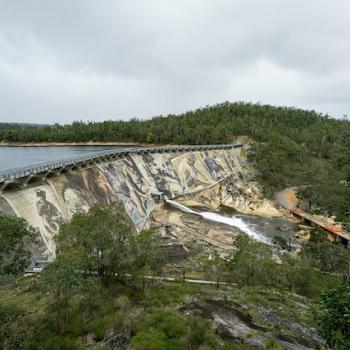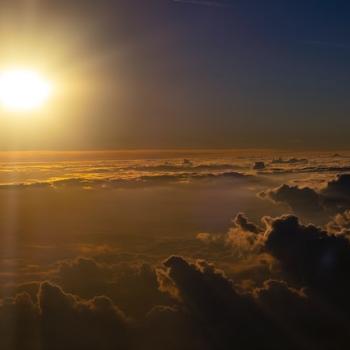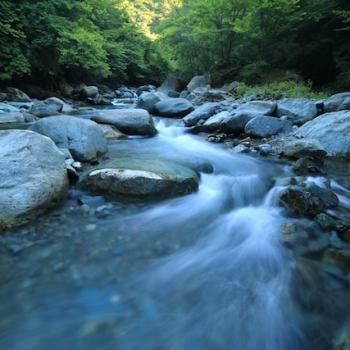There is a day
when the road neither
comes or goes, and the way
is not a way but a place.
—Wendell Berry
We drive to Bangor, take a right at the blinking yellow light, another right on Hastings Court and then down a dirt road to Blue Dog Greens. Twenty-eight acres of agreeable land tucked between the railroad tracks and Black River. Dennis and Genevieve live there, very simply, in order to tend this organic farm. It’s a sunny, wind-blown day in July and close to thirty of us show up to help harvest the garlic. About an acre to pull up, shake off, carry, rope and hang in the rafters of the open air shed; high enough that the animals can’t nibble the harvest away.
After a few rows, I get the hang of it: pull the stalk up directly, so the garlic underground won’t break off. Some come easy, as if waiting for us to finally bring them like a birth into the world. Others hold back, as if saying we’re not ready, leave us be. Either way there’s a tug as the roots break free. I pull up fifty or so and stop to stretch my back when I hear the wind bending the oaks and maples at the edge of the field. I can see the bunch of us scattered through the beds, bending and pulling in the rows. And something wells up in me. For a moment, I feel part of some unannounced community that has come together and come apart for all of time: the coming together to harvest, to pull what we can from the ground, to dry it out and wait; so it can feed the lot of us when the ground freezes up and things seem rough.
This is such hard work, not our pulling up the garlic, but the slowing of the land till it yields something edible and sustainable; the hard work of these two and the small band of earth-lovers who come and go to help. And though we think of bounty when we think of harvest, I realize that the process is much more complex and telling, endemic of resiliency on earth: the land is broken of its grip so it can receive a seed, then watered till the seed can take root, then covered and protected from birds and rabbits and coons, then weeded to keep the other wild things from suffocating what is slowly growing. And finally, when the edible thing has grown its own roots, we come along and tear those roots, so it can feed us.
This is not harsh but intimately natural, only callous when we forget what harvest means. Only wasted when we don’t make the intimate connection to how this process works in our own lives: how everything we love and want requires this slowing; until what matters takes hold enough that we can break its roots so it can feed us.
















